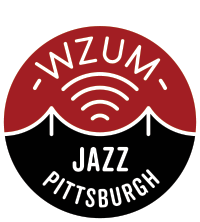Mary Lou Williams is a jazz legend who is also a Pittsburgh original.
Coming up Saturday July 26h at 6:30, the Adam Lee-Morgan Jazz Orchestra will present the “Revitalized Big Band Works of Mary Lou Williams,” a tribute to some of her earliest music of national note that will be shared at Schenley Plaza in Oakland — a performance that will please jazz fans, dancers and history buffs alike.
We talked with saxophonist, bandleader, educator and dancer Adam Lee-Morgan about his discovery of the music of Mary Lou, from a journey that has taken him from Los Angeles to New York, to China and now, Pittsburgh - where he is a PhD candidate in the Jazz Studies program at the University of Pittsburgh.
We have an extended talk with Adam about his exploration of swing era sounds, as a saxophonist, scholar, teacher and dancer.
Also on the program, a reminder of Mary Lou Williams’ role in the 1964 Pittsburgh Jazz Festival, held and the then brand-new Civic Arena. The all-star lineup was convened by Mary Lou and legendary festival impresario George Wein.
THE PITTSBURGH JAZZ FESTVAL of 1964
If we turn back the calendar to September 1964 - the Beatles played the Pittsburgh Civic Arena for their first and only show in the Steel City. Months earlier, a very major event happened in that same location, with echoes reverberating from 60 years ago to now. The first, ever, Pittsburgh Jazz Festival, June 19 and 20, 1964.
The idea of a Jazz Festival in Pittsburgh started much earlier with planning led by Mary Lou Williams and many others that went on for several years.
The sponsor of the event was the Catholic Youth Organization under the direction of the Rev. Michael Williams, with the encouragement of the leader of the Pittsburgh Diocese, Bishop John Wright. Governor William Scranton and former Governor David L. Lawrence served as honorary Chairmen. Mayor Joseph Barr issued a proclamation declaring “June is Jazz Month.”
The producers of the Festival were Mary Lou Williams and legendary festival promoter George Wein.
We have received a copy of the printed program which will share, soon. Through columns and articles from the Post-Gazette, the Pittsburgh Press and the Pittsburgh Courier, we’re finding a fuller picture of the notable weekend comes in to view - plus, a few stellar photos by the legendary Teenie Harris!
Charles “Teenie” Harris
Musicians Larry Gales, Ben Webster, Mary Lou Williams, and Percy Brice backstage of Civic Arena for Pittsburgh Jazz Festival. Credit Heinz Family Fund © Carnegie Museum of Art, Pittsburgh
It was a very Pittsburgh focused event with a global ambition featuring many “Hometown” headliners - the Mary Lou Williams trio (Larry Gales - bass, Percy Brice - drums) with Ben Webster - tenor sax, Harold Baker - trumpet, Melba Liston and Al Grey - trombones and singers Ethel Fields and Jimmy Mitchell.
Other Pittsburgh originated stars included vocalist Dakota Staton and Art Blakey and the Jazz Messengers; The Walt Harper Quartet, the Harold Betters Quartet with Benny Benack - trumpet and George Wein - piano. Add in the (40 piece) Pittsburgh Jazz Festival Orchestra, directed by Melba Liston.
Other headliners included the Dave Brubeck Quartet, the Thelonious Monk Quartet (featuring Charlie Rouse), The Jimmy Smith Trio and a band led by trombonist Al Gray. Also, vocalists Jimmy Rushing and Joe Williams with the Junior Mance Trio.
Also on the playbill, the Bernice Johnson Dancers and Comedian “Moms” Mabley. Plus the Newport All-Stars with the likes of Ruby Braff, Bud Freeman, Pee Wee Russell, Shorty Baker, Snookie Young, Percy Brice, and Ben Tucker.
An extended review by Phly Garland published in July in the Pittsburgh Courier gave a number of other aspects - the MC’s included Willis Conover, Father Norman J. O’Connor - also known as the “jazz priest.”
A number of stories from the festival that caught our attention - a column by Carl Apone wrote about a “long awaited $20,000 improvement to the Civic Arena’s sound system” that would get its first real test from the Jazz Festival - to be followed by a concert by Nat King Cole for the Civic Light Opera season July 6, 1964.
In that same column, Carl Apone noted that ticket sales were lagging just a week before the festival - sales of only $3,500 towards the $30,000 talent budget alone. Whatever happened next, total sales ended up at about $36,000. The “acid test” was the rehearsal for the Festival before doors opened on June 19, 1964 - for the biggest “high fidelity” sound system in the region at the time.
The festival made a profit - but barely - seemingly due to a cancellation - Sarah Vaughan was scheduled to perform - but cancelled shortly before the Festival. As noted in several articles , the $2,700 cancellation refund from the Sarah Vaughan booking was enough to swing the festival into a profit for the weekend. Making a profit helped lead to the return of the festival in 1965 with a 3 day event with another grand lineup of talent.
Thursday night at six, Friday and Saturday at noon, Sunday afternoon at 5 on WZUM.
Pittsburgh Courier, July 4, 1964, Page One, Section Two
Deanna Witkowski and Mary Lou Williams
1964 Pittsburgh Jazz Festival Advertisement, Pittsburgh Press, June 3, 1964
Carl Apone Column Jazz Tests Arena Sound, Ticket Sales for Jazz Fest a concern a week before 1964
Article from Jun 14, 1964 The Pittsburgh Press (Pittsburgh, Pennsylvania) Dakota staton, Harold betters, Mary lou williams, George wein






